Wisconsin homeowners need to be aware of the rights and responsibilities of their Homeowner Association (HOA) in order to avoid foreclosure. HOAs are responsible for maintaining common areas, collecting dues, enforcing rules and regulations, and ensuring the upkeep of homes.
The HOA is also entitled to pursue legal action against homeowners who fail to pay dues or adhere to association guidelines. Foreclosure is a potential consequence for those who do not comply with their obligations as outlined in the HOA agreement.
To protect themselves from foreclosure, Wisconsin homeowners should review their HOA agreement carefully and understand its terms before signing. They should also be aware of any changes or updates in state laws that could affect their obligations.
Knowing their rights and responsibilities can help Wisconsin homeowners stay on top of any issues with their HOA and ensure they meet all requirements for avoiding foreclosure.
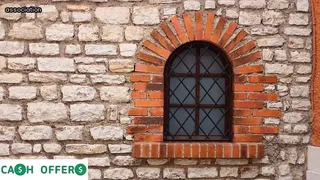
Knowing your homeowner rights is essential if you are a homeowner in Wisconsin, especially when it comes to dealing with Homeowners Association (HOA) foreclosure laws. It's important to understand the legalities before it's too late and you find yourself in a difficult situation that could cost you your home.
Wisconsin state law outlines the necessary steps for an HOA to legally foreclose on a home and the homeowners must be notified of the proceedings before any action can take place. The process begins with a lien being filed against the property, followed by a notice of intent to foreclose and finally, if the delinquent amount is not paid, the court will authorize foreclosure proceedings.
It's important to note that all communication must be sent via certified mail so that it can be tracked and documented. If you receive notice of an impending HOA foreclosure, it’s essential to seek legal advice as soon as possible in order to protect your rights and hopefully resolve any delinquency issues without losing your home.
Homeowners in Wisconsin should understand the causes of HOA foreclosure before it's too late. The most common reasons for a homeowner to fall behind on their dues is due to financial hardship or an inability to pay the full amount at once.
Other causes include failure to pay fines, failure to comply with association requirements, and even delinquent taxes owed by a homeowner. Homeowners who are unable to make payments may be subject to foreclosure proceedings initiated by the HOA.
In some cases, legal action may also be taken against homeowners who fail to meet their obligations and maintain their property according to local ordinances. Understanding the causes of HOA foreclosure can help homeowners protect themselves from falling victim to potential legal issues that could arise later on down the road.
Taking preventive measures now can ensure that Wisconsin homeowners are informed about their rights and responsibilities regarding HOA regulations and remain in compliance with all applicable laws.

When it comes to owning a home in Wisconsin, it is important for homeowners to understand their HOA foreclosure laws. Foreclosure is the legal process of a lender repossessing and reselling a house when the homeowner has failed to make payments on the mortgage.
HOAs are given priority and can foreclose ahead of other lenders or condo associations, so understanding how HOA foreclosure works is essential. An HOA will typically send out notices and warnings before pursuing foreclosure, giving homeowners the opportunity to try to settle the debt by making payments or restructuring payment plans.
When an HOA begins the process of foreclosure, they must follow specific laws outlined in the state of Wisconsin, including providing notice of intent to foreclose and filing paperwork with a court. Homeowners should do their research and consult an attorney if they have any questions about their rights or obligations under Wisconsin’s HOA foreclosure laws.
It is important for Wisconsin homeowners to be aware of these laws so that they do not find themselves in an unfortunate situation where they face losing their home due to defaulting on their mortgage payments.
If you're a Wisconsin homeowner, it's important to understand HOA foreclosure laws before you find yourself in a difficult situation. Fortunately, there are steps that can be taken to prevent an HOA foreclosure.
The most important is being proactive – staying informed about your rights and obligations as a homeowner. You should also make sure to pay any dues or assessments on time and in full, or contact the HOA if you are having difficulty making payments.
Additionally, attending all HOA meetings can help you stay up-to-date with any changes in regulations or policies that could affect your financial responsibilities, and give you more control over how the organization is run. Lastly, if an HOA does start foreclosure proceedings against you, consider consulting with an attorney who understands the complexities of Wisconsin's foreclosure laws so they can help protect your rights and property.
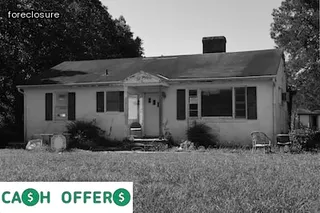
When facing the potential of foreclosure from a Homeowners Association (HOA) in Wisconsin, it is important to understand the state’s laws regarding such an event. Before foreclosure takes place, there are multiple alternative solutions available.
One option is to seek a loan from friends or family members and use those funds to pay off any past due amounts. In some cases, loan modification may be an option, depending on the financial institution that holds the mortgage.
It may also be possible to arrange a payment plan with the HOA directly in order to prevent foreclosure. Furthermore, homeowners can explore options such as short sale, deed-in-lieu of foreclosure and various types of refinancing in order to keep their home.
Ultimately, understanding Wisconsin’s laws surrounding HOA foreclosures and acting fast are key to finding successful alternatives before it’s too late.
Wisconsin homeowners should be familiar with the state's Homeowners Association (HOA) foreclosure laws to avoid potential financial difficulties. HOAs are organizations that manage and maintain a neighborhood or community, and members are obligated to pay association fees in order to keep their properties up to code and in line with local regulations.
The failure to meet these obligations can result in legal consequences, including foreclosure. Although HOA fees may seem like an extra expense, they play an important role in maintaining a safe and orderly community, which is why it is important for all Wisconsin homeowners to understand the rules and regulations of their local HOA before they purchase a property.
If a homeowner falls behind on payments or fails to comply with the HOA's rules, they risk losing their home through foreclosure proceedings. In this case, understanding the specifics of HOA foreclosure laws can help homeowners avoid unpleasant situations and protect their future financial stability.
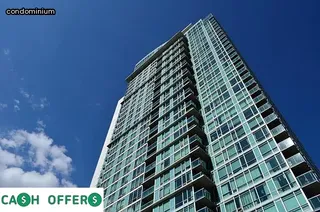
Recording an association lien is an important step in protecting the interests of a homeowner's association (HOA) when it comes to unpaid assessments or other debts owed to the organization. This practice ensures that Wisconsin homeowners understand the power of HOAs and their ability to foreclose on a home if necessary.
This process typically begins with a notice of violation, sent out by the HOA when members fail to pay their dues or comply with their obligations under the governing documents. If this notice goes unanswered, the HOA may then record a lien against the homeowner's property.
This lien allows HOAs to legally collect delinquent fees from the homeowner and serves as an effective reminder that they must meet their financial obligations or risk foreclosure proceedings. It is important for Wisconsin homeowners to be aware of these laws and their implications, so they can take steps in advance to protect themselves and their property before it’s too late.
Wisconsin homeowners should understand the foreclosure laws set by Homeowner Associations (HOA) before it’s too late. The lien notice requirements are important to be aware of, as they can have a big impact if not followed.
Foreclosure is an issue that needs to be taken seriously, and in Wisconsin, an HOA must give a homeowner written notice of the delinquent amount due at least 30 days prior to filing for foreclosure. If the homeowner doesn’t pay the amount in full within that time period, then they may be subject to foreclosure.
HOAs also are required to send a notice of lien to the homeowner within 14 days after filing for foreclosure with the court. This notice should include a copy of the lien instrument and information on how and where payment must be sent.
Failing to comply with these requirements can result in delays or dismissal of a foreclosure case. Knowing about these requirements can help Wisconsin homeowners take action sooner rather than later in order to avoid potential foreclosure proceedings.
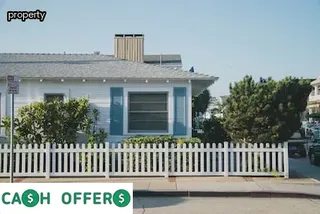
Contesting an association lien can be a daunting process for Wisconsin homeowners. It is important to understand the law before taking any action, as an incorrect move could result in a costly mistake.
Homeowners should take time to research their rights and the foreclosure procedure of their Homeowner Association (HOA). It is often necessary to hire an attorney who specializes in HOA law in order to effectively contest a lien.
Additionally, it is wise to ensure that all paperwork is filed on time and that all court appearances are made as required by law. Furthermore, Wisconsin homeowners should be aware of what constitutes valid reasons for contesting an association lien.
Knowing the details of the situation and the legalities involved can help successfully navigate this complex process. Understanding HOA foreclosure laws is essential for Wisconsin homeowners in order to avoid penalties or further complications due to an association lien.
When owning a home in Wisconsin, it is important to understand the process of HOA foreclosure in order to protect your rights and assets. Knowing the lien priority status of your property is essential to understanding how the foreclosure process works and what you can do if ever faced with it.
A lien priority status determines how much money a homeowner may owe on their property and whether or not they will be able to keep it after an HOA foreclosure. The higher the lien priority, the more likely you are to keep ownership of your property.
Knowing this information can help you plan for any potential financial losses that may occur and prepare for any course of action that may need to be taken should things go awry. It is also wise to discuss lien priority status with an experienced attorney who specializes in HOA foreclosure laws as they can provide valuable insight into what steps should be taken and what legal remedies are available in such cases.
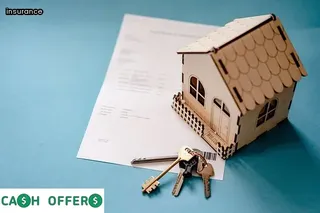
Wisconsin homeowners should understand the potential impacts of an association lien on their property before it is too late. An association lien is a legal claim against a homeowner’s property that is used to ensure payment of past due assessments or other fees owed to the homeowner’s association.
This type of lien can be very damaging to a homeowner if they fail to pay their dues, as the lien may be foreclosed upon and the home can be sold in order to satisfy the debt. Even prior to foreclosure, an association lien could make it difficult for a homeowner to refinance their mortgage or take out loans against their property.
It is therefore important for Wisconsin homeowners to understand how these liens work in order to avoid any serious financial consequences.
When homeowners belonging to a Homeowners Association (HOA) in Wisconsin fail to pay their dues, the association has the power to leverage a lien against the property. This means that if an owner does not pay, even after legal proceedings and court orders, the association can start foreclosure proceedings.
It is important for Wisconsin homeowners to understand HOA foreclosure laws before it's too late so they can be aware of their rights and obligations. Understanding what happens when the association places a lien against your property is essential - including when they decide to foreclose.
Knowing the process and timeline that must be followed by HOAs during foreclosure proceedings will help you protect yourself and your home as much as possible in case of delinquency on payments. Additionally, understanding how liens are released and what happens if you eventually do pay off your debt can provide some relief and peace of mind.
Taking time to educate yourself on HOA foreclosure laws will go a long way in protecting yourself from any potential issues down the line with your HOA.

Wisconsin homeowners should be aware of the requirements for associations to foreclose on a property. Homeowner Associations (HOAs) are responsible for managing and maintaining community standards and must adhere to foreclosure laws when necessary.
The first step in the process is for the HOA to notify the homeowner of their delinquency through a collection notice. After this, the HOA must file an official lien with the Wisconsin Department of Financial Institutions if the homeowner does not make payment within 30 days of receiving the collection notice.
To continue with foreclosure proceedings, the association must then file a petition with the Clerk of Court. In order to successfully secure a foreclosure, associations must provide evidence that they have notified both parties involved, including all relevant documents such as past-due records and payment plans, at court hearings.
If all protocols are met correctly and without delay, HOAs can gain legal ownership of a property in order to collect on a delinquent debt or resell it.
Yes, Wisconsin HOAs have the legal right to foreclose on a house if necessary. It is important for homeowners in Wisconsin to understand the foreclosure laws, as well as the specific regulations and procedures that an HOA must follow before they can legally foreclose on a property.
HOAs are allowed to file a foreclosure lawsuit in court, provided that they follow all local, state, and federal regulations. A homeowner’s failure to pay their HOA dues could result in a lien being placed on their property which would lead to foreclosure if not resolved.
Additionally, it is important for homeowners to be aware of any timeline or deadlines the HOA might have set so that they can take action accordingly. If a homeowner does not take action prior to an HOA's deadline, then their home may be subject to foreclosure by the HOA.
Understanding these laws and regulations beforehand can help Wisconsin homeowners avoid unnecessary risk and financial hardship in case of potential foreclosure from an HOA.

Mediation is a popular option for resolving Homeowners Association (HOA) disputes because it is often more cost effective and less time consuming than other methods. However, understanding the pros and cons of mediation is essential in order to make an informed decision about how to approach an HOA dispute.
On the plus side, mediation offers an opportunity for both sides to come together and discuss their issues in a neutral setting. The mediator can help identify areas of agreement and disagreement, as well as facilitate a resolution that both parties find acceptable.
On the downside, since neither party has the power to impose a solution, they must work together collaboratively in order to reach a resolution. Additionally, some homeowners may feel uncomfortable discussing sensitive topics with their neighbors or HOA board members in front of a third-party mediator.
For Wisconsin homeowners facing an HOA dispute, taking the time to understand the pros and cons of mediation can help them make an informed decision about how best to resolve their issue.
Preparing for negotiations with your HOA board is vital for any Wisconsin homeowner. It is important to understand the legalities of foreclosure laws, as well as the process involved in negotiating with your HOA board.
Researching the applicable laws and regulations ahead of time will ensure that you are familiar with all of the details that may come up during the negotiation process. Additionally, staying organized and prepared will help you remain focused on your desired outcomes.
Knowing how to handle difficult conversations, such as those involving potential foreclosures or other financial decisions, can help you effectively communicate with your HOA board and get the best results possible. Taking the time to thoroughly prepare yourself before entering into negotiations will allow you to have a better understanding of what's at stake and give you confidence when it comes time to negotiate.

If you are a Wisconsin homeowner in the midst of a Homeowners Association (HOA) dispute, understanding the foreclosure laws may help you to modify your mortgage and avoid foreclosure. It is important to be aware that foreclosures initiated by an HOA dispute in Wisconsin differ from those initiated by a lender.
The process of modifying your mortgage due to an HOA dispute requires knowledge of the specific state laws and regulations governing the process. To navigate through this process, it is essential to consult with an experienced attorney who can advise you on what steps to take and how best to protect yourself and your property.
Additionally, it is wise to be familiar with any relevant local ordinances that may also impact your situation. Before signing any documents, it is critical that you fully understand all details and potential implications for each step of the process.
Taking proactive steps early on can save time and money in the long run and make sure that your rights are protected throughout the process.
In Wisconsin, having an understanding of the Home Owners Association (HOA) foreclosure laws is paramount to avoiding potential financial strain. If a homeowner fails to pay assessment fees, they may have their property foreclosed on and sold in order to cover the amount due.
It's important for homeowners to be aware that foreclosures can take place even if the debt is small or if a payment plan has been setup. Once initiated, HOA foreclosure proceedings are legally binding and difficult to stop.
Before the situation becomes too dire for a homeowner, it is essential to understand the legal implications of not paying assessments fees, such as possible liens against the property or wage garnishment. Additionally, being aware of local resources available for assistance is equally as important.
Many municipalities offer grants or loans that can help mitigate any negative impact from HOA foreclosure proceedings. Therefore, it's critical for Wisconsin homeowners to educate themselves on HOA foreclosure laws and available support systems before it’s too late.

The best way to avoid conflicts with a Homeowners Association (HOA) in Wisconsin is to proactively understand the foreclosure laws. It's important for homeowners to be aware of their rights and responsibilities as defined by state law, in order to ensure that they don't find themselves at risk of foreclosure.
The HOA is responsible for enforcing the rules and requirements of the homeowner agreement, so if any of these regulations are not followed, it could lead to a violation and possible foreclosure. Knowing what is expected from both sides can help homeowners stay in compliance with the HOA and avoid legal action.
In addition, it can also be beneficial for homeowners to do their own research about the laws surrounding foreclosure in Wisconsin, so that they are prepared should any issues arise. By understanding how to navigate potential conflicts before they become serious issues, homeowners can protect their property and avoid costly legal disputes with their HOA.
In Wisconsin, the foreclosure process typically takes between 3-5 months; it's important for homeowners to understand their state's HOA foreclosure laws before it's too late. Wisconsin requires lenders to notify homeowners of the pending foreclosure at least 90 days prior to filing a lawsuit.
The homeowner then has 30 days to settle the debt or attend a court hearing. If the homeowner does not resolve the debt, a judgment will be entered against them.
Once the judgment is entered, lenders are then able to begin foreclosing on the property and will set an auction date for which any interested buyers can submit bids. The highest bidder is then awarded ownership of the home and must pay off any remaining balances due within 10 days of the sale.
In some cases, homeowners may have additional time to redeem their property by paying off all outstanding balances after losing in court but before the auction date. Understanding these laws and timelines can help Wisconsin homeowners avoid foreclosure when possible.

Yes, Wisconsin does have a right of redemption for foreclosure. This means that homeowners in the state have the right to attempt to redeem their property after it has been foreclosed on.
For those facing foreclosure, understanding the state's laws and processes can help them avoid losing their property. According to Wisconsin law, a homeowner has 12 months from the date of sale of the property to redeem it by paying off any debts owed plus interest and costs associated with the foreclosure.
The homeowner must provide a certified check or cash for payment to the county clerk in order for their redemption request to be accepted. If this is not done within the designated time frame, then ownership of the foreclosed home will transfer from the former owner to its new owner.
Therefore, it is important for Wisconsin homeowners to familiarize themselves with legal requirements and timelines before making any decisions regarding foreclosure. Knowing your rights and understanding hoa foreclosure laws can help homeowners protect their investments and keep their homes.
The foreclosure process in Wisconsin is complex and can be intimidating. Understanding the laws related to homeowner's association (HOA) foreclosure is an important step in protecting your rights as a homeowner.
In Wisconsin, HOA foreclosures occur when the homeowner fails to pay maintenance fees, dues or assessments. The first step of the foreclosure process is for the HOA to file a lien against the property for non-payment.
This lien will allow them to pursue a court action if payments are not made within a certain period of time. If this occurs, the court will issue a judgment against the homeowner and order them to pay off their past due balance.
If they fail to do so, then the HOA has the right to seek a sheriff's sale of the property and take possession of it once it's sold at auction. Homeowners must be sure to understand all state foreclosure laws in order to protect their rights before it’s too late.
In Wisconsin, homeowners should understand HOA foreclosure laws before they make any decisions. It is important to note that a Homeowners Association (HOA) can be dissolved in Wisconsin if certain conditions are met.
Generally, these conditions include the approval of all current members of the association; written notice of the dissolution must also be provided to the municipal clerk or county register of deeds. Furthermore, if there are any existing debts owed by the association, those must be paid off prior to dissolving it.
In addition, depending on local regulations, some HOAs require approval from a state government body before they can dissolve. To ensure that homeowners understand all the legal implications of dissolving an HOA in Wisconsin, it is recommended that they seek guidance from a qualified attorney who specializes in HOA-related matters.
With this information in hand, homeowners will be better equipped to make informed decisions about their individual situation and know what steps need to be taken in order to properly dissolve their HOA.